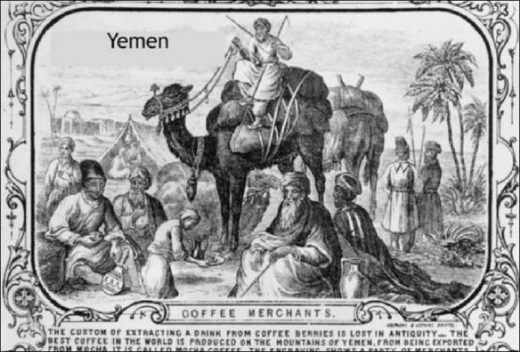Homeland of coffee. It is believed that coffee was discovered by the goats of a shepherd named Khaldi, who lived in Ethiopia in the 9th century. After taking his goats out to graze, he observes that the goats behave differently than normal. Their goats are red. He sees them eating the fruits of a tree that has fruits.
Khaldi gets curious and eats the same fruit, and after a while he feels that his energy has increased and he is vigorous. This fruit invention spread rapidly and became a culture of Ethiopia. At first, its leaves and fruits were consumed by eating. It has begun to be consumed as tea by boiling, which is a more rational method. It was also consumed as an energy snack by crushing the seeds and mixing them with animal fat.
Due to trade with the Arabs, the beverage they made reached the Arabian peninsula in a short time. After Ethiopia, coffee trees also grew in Yemen. Coffee was first accepted as medicine for the Arabs, but soon became a food consumed every day.
Everything changed after the Ottoman Turks invaded Yemen in 1536, and coffee became a very important trade commodity. Coffee was generally transported from Yemen’s Mocha Port. Since the Turks knew that coffee was an important source of income, they never sent coffee without boiling or roasting in order to monopolize tree cultivation. However, everything was transported to India by a merchant named Baba Budan, who carried coffee fruits in his stomach. It changed when he planted himself in Mysore mountain.
The fact that the Netherlands was the largest country in maritime trade in history made it easier for coffee to spread to Europe. He grew coffee trees on many islands in the Indian Ocean. Coffee started to be sold in Europe in Italy in 1650. The first coffee shop was opened by Kiva Han in Istanbul in 1555.
A person named Georg Franz Kolschitzky, who once lived with the Arabs, stopped the Austrians from burning the remaining spoils after the 2nd siege of Vienna. Realizing that the smell he smelled in the burning spoils was the smell of coffee, Kolschitzky opened a coffee shop in Venice in 1683 under the name of ‘caffe’, thanks to his knowledge of roasting, grinding and brewing, and it influenced the whole of Europe.
Visits: 43




